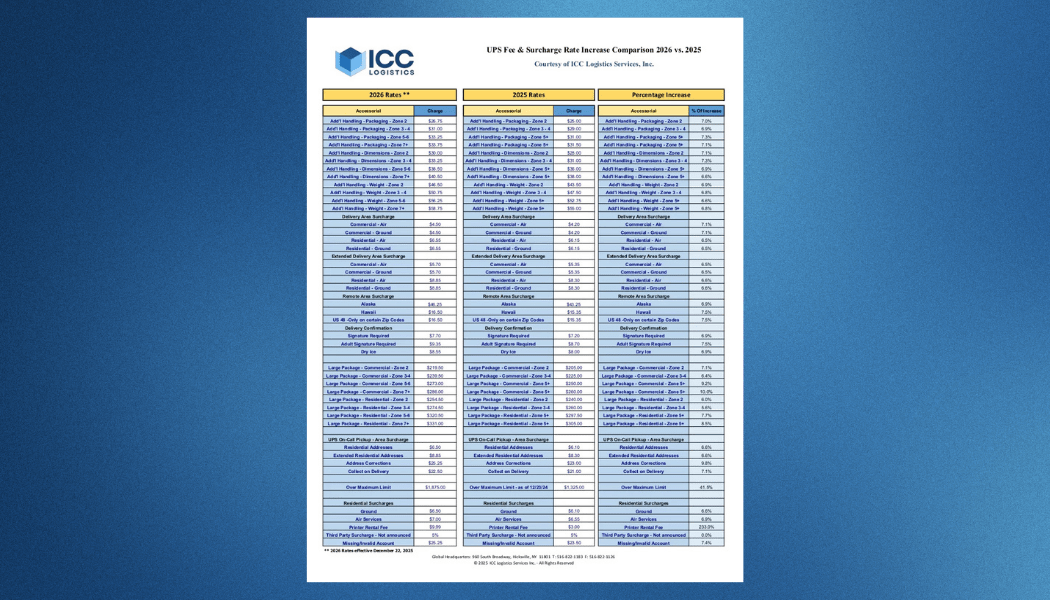All shippers have certain expectations for their carriers. It is fair to expect that your carrier will provide solid, high level on time performance at competitive rates. It is also common to expect your carriers to support your operational needs and have the capacity to handle your volumes throughout the year. Basically, these are “table stakes” that shippers consider when choosing a carrier.
But, one of the items that shippers don’t often think about is what they should expect as far as representation and customer support from their carriers. Obviously, the type of representation that a shipper would require is based on the amount of volume they ship as well as the type of products they are shipping. For example, high volume pharmaceutical or perishable products shippers typically require a higher level of support and responsiveness compared to other shippers.
However, all shippers should expect to have some level of support for their account. As we all know, things don’t always go perfectly in the shipping world! There is nothing worse than having an issue with a customer shipment, and not being able get it resolved. Not only is it frustrating for the shipper, but it is most likely also frustrating for the consignee/customer. Failure to rectify issues can result in lost customers and long term revenue losses.
Unfortunately, it seems that these days’ carriers are providing less and less direct support for shippers of all sizes. So whether you are a large Enterprise shipper, or a Small or Medium size business, you probably have seen a decline in the amount of direct support that you are seeing from your carriers.
There seems to be an ongoing trend with carriers to reduce the amount of customer facing people that they employ. Local account reps are being replaced with support teams that only communicate via phone, on-line, or email. Many carriers have implemented on-line processes that eliminates work that local reps had done in the past. Also, a lot of carrier support contacts are being moved off-shore.
In the past, larger Enterprise customers had a team of people that supported their account that included a main Manager or Director that oversaw a group of resources that could assist with a variety of customer needs. The Enterprise team often included support for Technology, Reporting/Analysis, International shipping activity, and more.
Over the years, we have seen these teams reduced, in conjunction with the Manager/Director being tasked with handling more accounts. There appears to be an ongoing trend with carriers to “do more with less.” We constantly here from shippers that they have difficulty getting in touch with their reps, or that their reps take a long time to get back to them. In our eyes, this is totally unacceptable given the many ways that people can communicate these days.
It’s pretty obvious why carriers have been making efforts to streamline their support processes. It’s all about reducing overhead costs. The good news is that most carriers have been generous and have passed the benefit of these cost reduction efforts onto their customers!! Oh wait that’s not true, this is totally fake news!
Actually, the exact opposite appears to be true, many carriers have implemented record level rate increases while at the same time reducing representation and support. How nice! So now the carrier’s efforts to “do more with less” is resulting in shippers getting “less for more!”
So, what does this mean for the shipper, and what should you do?
All shippers should expect to have resources assigned to their account to deal with the day to day problems that can occur in our world of constant transportation disruptions! When choosing a carrier, one should ensure that the carrier will be able to provide the level of support that is appropriate for their volumes, type of products, and expectations.
Here are some recommendations to help ensure that shippers receive the level of support that is appropriate for their shipping volumes.
- Document Expectations- Before signing a new agreement, provide your carrier with your customer support requirements “IN WRITING.” High volume shippers, pharmaceutical/ perishable shippers might even have customer support guidelines included in their agreement. Either way, it is imperative that support expectations and needs are documented up front.
- Have a Plan- Ask your rep to put together a Standard Operating Procedure (SOP), that outlines all of your operational and support requirements. This document should include pick up times, names and phone numbers for operations contacts, names and phone numbers/emails for all customer support channels and contacts, and any other crucial details that define your needs for support.
- Chain of Command- The big carriers have multiple layers in their sales/support functions. Ask for names and contact information for your main representative’s boss up front. If your rep knows that you have their boss’s information, you might expect them to be a little more responsive to you. The more contacts that you have at levels above your main resource the better.
- Give Your Rep a Chance- If your representative is not getting back to you, or is not meeting your expectations, it is fair to have a heart to heart with them. You don’t need to disrespect the chain of command right away. This might only sour the relationship that you have with your rep. The conversation might sound like “Hey Mr./Ms. Rep, you know that when we agreed to sign with your company, we spoke about the support and responsiveness that we expected/required. I have to tell you that we don’t feel like you are living up to the conditions that we agreed to. I figured that I would give you a chance before I escalated the concern above you.”
- Take it up the Ladder- If the conversation with your rep does not fix the problem, use the contact names and numbers that you obtained as described above. You don’t need to immediately throw your rep under the bus. If you think it’s appropriate, you might say something like “Hey I’m not sure if you have our rep spread too thin, but we are having a hard time getting in touch with them/having trouble with his/her responsiveness”. Or, “not sure if our rep is out of pocket or something, but I haven’t heard back from them in X days.”
- Don’t be a Stranger- Most sales reps like to have regular meetings with their customers. Having a formal/regular meeting can only help to strengthen the relationship with your rep and their company. This is an opportunity for them to learn more about your business, and for them to tell you about what is happening with their company. Maybe they will even have the chance to sell you on a new product or service! So, encourage your rep to set up regular meetings with you. This could be done either in person, or online. Either way, get some dates on the calendar for the whole year to ensure that this happens.
It really comes down to building a complete strategy for your engagements with carriers. Don’t just concentrate on pricing, discounts, and agreement terms and conditions. Taking a holistic approach to your carrier relationships will help to ensure that you are able to provide your customers with the best service and shipping costs possible. A solid carrier engagement strategy will help drive long term success and maximum profits not only for your company, but for the carriers as well.
Ready to ensure you receive the support and service you deserve from your carriers? ICC Logistics Services offers a range of solutions to help you maximize efficiency and cost-effectiveness. Contact us today to learn how our expert services can benefit your business.



 to receive our FREE white papers:
to receive our FREE white papers: